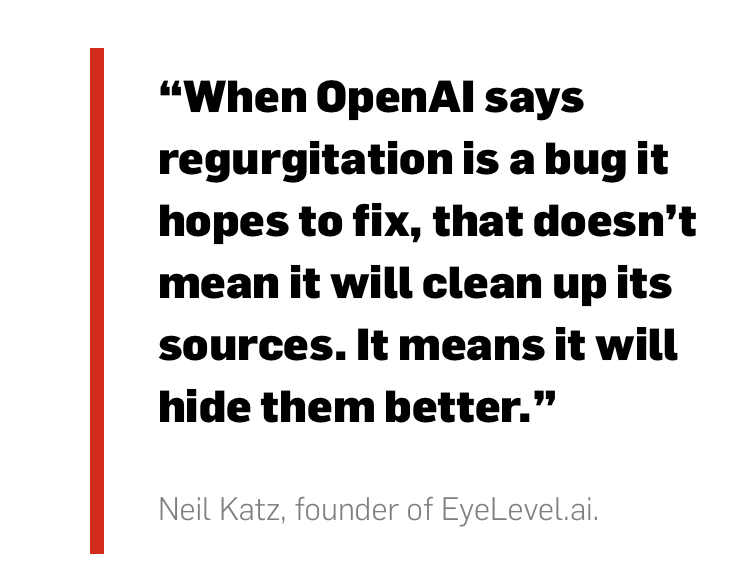4 Takeaways From OpenAI’s Response to The New York Times’ Lawsuit/
Calling regurgitation a 'rare bug' strikes some as a red herring
By Mark Stenberg
OpenAI’s response to The New York Times’ lawsuit reveals several key points of tension between the news industry and generative artificial intelligence firms and their backers.
In particular, OpenAI’s response shows the limited, albeit critical efforts, that the company has made to collaborate with publishers; the challenges of focusing too heavily on regurgitation; the disputed limits of fair use; and the false logic of an opt-out option, according to interviews with publishing executives and gen AI experts “This litigation is not going to be resolved any time soon, but when it is, it will shape the landscape and future of publishing,” said media analyst Matthew Scott Goldstein. “The big question is whether other publishers should join, sue individually or wait out this case.”
Limited, nascent collaboration
In its statement, OpenAI emphasizes how it collaborates with news organizations like the American Journalism Project and News/Media Alliance.
News outlets have welcomed these conversations, as they represent a healthier approach than the alternative. But these dialogues have been limited, nascent and, at least in the case of The New York Times, unappealing.
For instance, despite training on publisher data for years, OpenAI has struck only two partnerships (the Associated Press and Axel Springer). This limited sample size runs counter to its claims of supporting the broader news ecosystem, according to Neil Katz, founder of EyeLevel.ai.
“They’re helping news organizations? Who and how?” Katz said.
Smaller publishers—particularly ones with less bargaining power and political clout—also deserve to be compensated for their data, said Raptive CEO Michael Sanchez. So far, no efforts to negotiate with independent creators have materialized.
And for many organizations, like the Times, the licensing offers have proven uninspiring. OpenAI has reportedly floated sums of between $1 million and $5 million to some publishers in exchange for the right to train on their data.
While these payments are unlikely to cover the production cost of most news publishers’ content, they could still prove alluring to cash-strapped media outlets, said media analyst Mauricio Cabrera.
“Rather than engaging in protracted battles that they might not win, media outlets may opt for less-than-perfect agreements that provide them with much-needed financial support,” Cabrera said.
The debate on this topic will continue for some time; read the rest of the article at ADWEEK.com.

